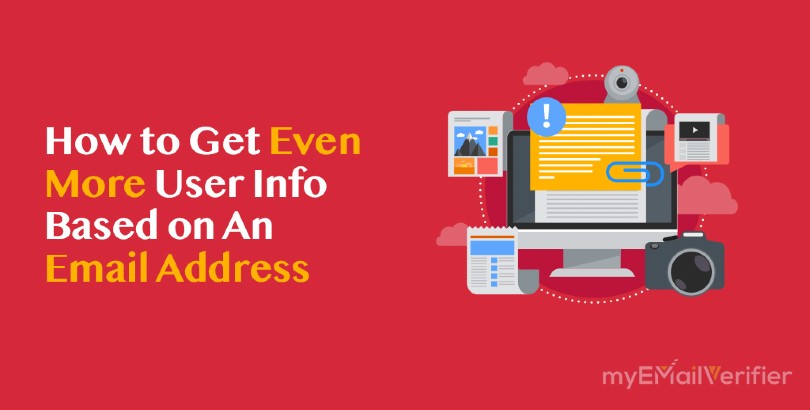At MyEmailVerifier, we already help you remove invalid addresses from your mailing lists. This reduces marketing costs, improves deliverability, and generally gets better results from your newsletters.
But did you know an email address is actually a treasure trove of info for finding out more about your users?
Here’s a list of questions you’ll be able to answer about users based on a single address.
Should I Keep That Address in My Marketing List?
Checking address validity is, of course, what all the tools we review on our site specialize in doing. So the first step is to check that the email address is real and that it can receive your messages.
- Check email validity via SMTP
- Confirm address domain and MX
- Find disposable emails
These services are quick, and in the case of MyEmailVerifier, our top-rated solution, extremely precise in their results.
Should I Do Business With That User?
A more complicated question, which can often be answered by performing a background check on the user. And you’ve guessed it: a variety of services allow you to do it based on an email address alone. It will let you find the info such as:
- The person’s name and surname
- Some social media accounts
- Criminal records (in the US)
- Bankruptcy reports (in the US)
- Sometimes, the person’s job history (usually from LinkedIn)
Now there are a few things to note:
- These tools take a lot longer than email verification tools (and they’re also pricier)
- Most claim they’re free, but that’s not really true. The search is free, but the data is hidden behind a paywall
- Most of the legal documents are only found in US public legal records
- There can be issues with data protection, so you can’t use them in Europe because of the GDPR
For an idea of how these background check tools work, you could check out Been Verified (if you’re in the US).
Should I Allow That User On My Site?
An even more complicated question that is specific to fraud prevention. And you might be surprised to know that, once again, a single email address can answer that question with amazing precision, based on:
- The user’s name and surname
- Links to all social media accounts
- Find out if the address is on any known fraud blacklists
- See if the email address domain is free
- How new is the email address
- A risk score
The tools that let you perform this kind of email analysis are robust anti-fraud solutions which are legal and GDPR compliant. And while it can sound intimidating, the technological advances of the last few years have made them easier to use and more affordable than you might think.
For instance, a company like SEON has a simple chrome extension that gives you a full reverse email lookup in a couple of clicks only. Best of all, the results come in under one second. (And you get even more options when you integrate via API or a dedicated GUI).
After reviewing all the extra info you’ve gained, you should have a much clearer idea of whether the user looks legit, or likely to commit fraud.
Key Takeaway
An email address is the closest thing we have to an online passport these days. And of course, your job as a responsible marketer is to check that the passport is valid, and in the right hands.
But there’s also a wealth of extra info you can get based on that simple email address. So if you ever need to remove your doubts about a potential hire, customer, or new use on your site, just run their address through one of the tools mentioned above: you might be surprised by what you find.
